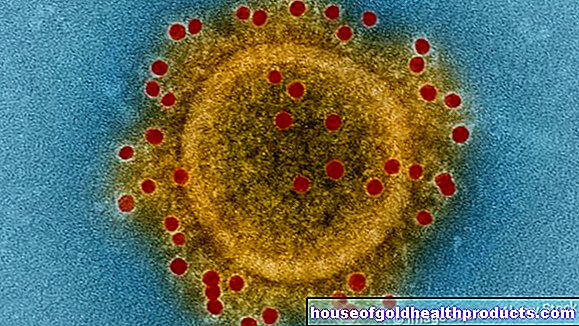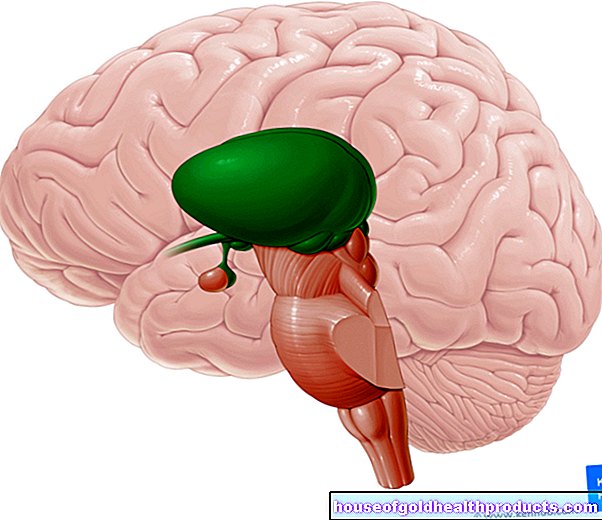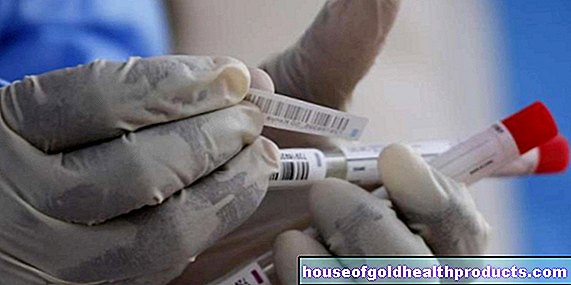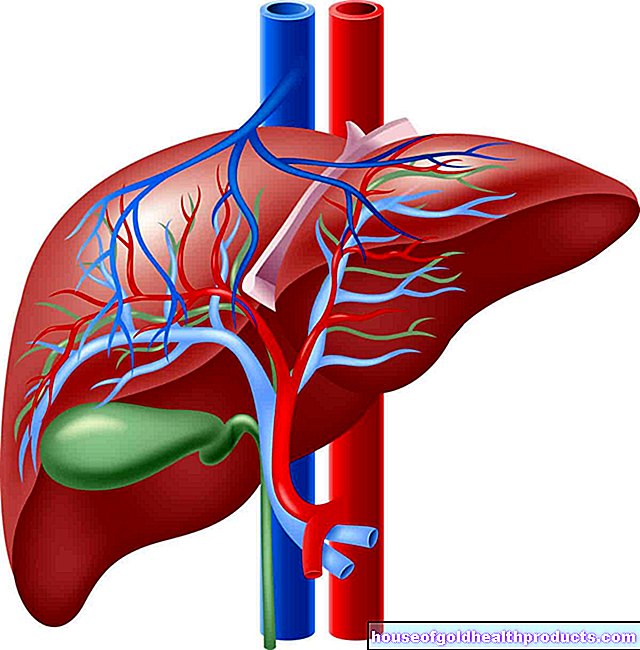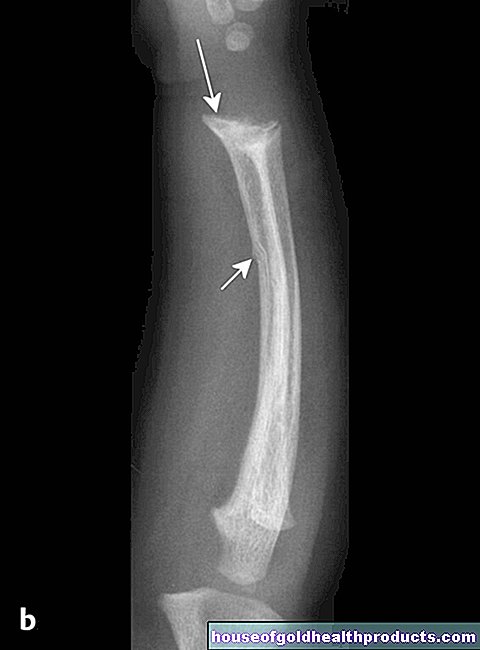Multiple sclerosis: risky victory over the disease
All content is checked by medical journalists.In multiple sclerosis (MS), the immune system attacks the nerve cells. So far one can only alleviate the symptoms and slow down the progression of the disease, the disease cannot yet be cured. With a radical therapeutic method, doctors have now managed to completely rid MS patients of their disease. However, the method involves considerable risks.
To turn off the misdirected immune cells, Harold Atkins and his colleagues from the University of Ottawa completely swapped the immune systems of 24 MS patients. They all had a rapidly progressing form of the disease.
Reprogrammed immune system
First, the blood-forming stem cells, which also form the immune cells, were lured into the blood by a drug from the bone marrow and then fished out. In the next four days, aggressive chemotherapy drugs completely destroyed the patient's immune system. Such a procedure is also used in leukemia patients receiving a bone marrow transplant. Afterwards, the MS patients received their previously removed stem cells back - so that a fresh immune system could develop. The study participants then spent several weeks in an isolation ward to protect them from pathogens. That is how long it takes for the immune system to be fully operational again.
The result was promising: the disease was completely stopped in 70 percent of the patients. During an observation period of four to thirteen years after treatment, they did not suffer a single episode of illness. No new sources of inflammation could be detected in the brain. Apparently the newly programmed immune system did not make the fatal mistake of attacking the body's own nerve cells again.
Easy game for bacteria
"This is really exciting," says study director Atkins. “Our clinical study is the first to achieve a long-lasting halt to inflammatory activities in patients with MS.” Despite all the euphoria, there is also one major disadvantage: the treatment is associated with considerable risks. Bacteria and viruses have an easy job until the immune system is operational again. One of the study patients died of liver necrosis 62 days after the immune transplant. Atkins therefore only recommends the therapy for people with very aggressive MS, i.e. rapidly progressing disease, at an early stage. "Patients who have been disabled for a long time would probably not benefit sufficiently from it."
Multiple sclerosis is an autoimmune disease - this means that the immune system attacks the body's own structures. The immune cells destroy the protective covering of the nerve fibers, the so-called myelin layer. The signals can no longer be passed on correctly. In addition, inflammation develops in the brain and spinal cord. Those affected then suffer from visual disturbances, pain or paralysis. The disease usually occurs in episodes, after which the symptoms either completely subside or partially persist. Women are about twice as likely to develop multiple sclerosis as men. It usually begins in early adulthood between 20 and 40 years of age. (away)
Source: Atkins H. et al .: Immunoablation and autologous haemopoietic stem-cell transplantation for aggressive multiple sclerosis: a multicentre single-group phase 2 trial, The Lancet, June 2016, DOI: 10.1016 / SO140-673630169-6
Tags: digital health unfulfilled wish to have children Baby Child






